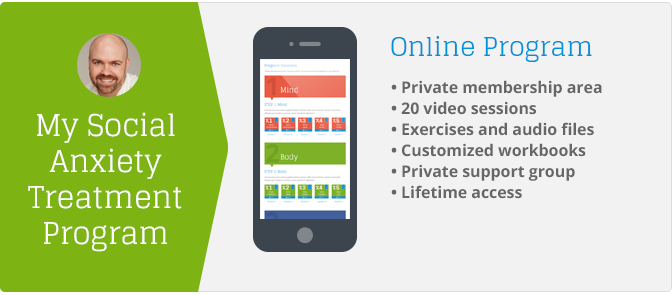Locus of Control and Social Anxiety – How to Let Go

‘Locus of Control’ is a term you may not be familiar with, even if you have social anxiety. Yet, it is one of the core principles that explain the root of social phobia.
Although it is a psychological concept, it is actually quite a simple one. Overall, people believe that either they have control over their life (internal locus), or external circumstances do (external locus). It is easy to see how locus of control and social anxiety would be related and how people with external locus, who feel they have little say in what happens to them, would be more anxious.
In addition, an external locus will reinforce people’s needs to control at least what they can, the small things in their life, which can turn to obsessiveness, and more anxiety when they leave their comfort zone and tackle the bigger challenges.
Social anxiety is characterized by hyperfocus, which you have more than likely experienced if you reading this post. Have you ever been really convinced that everybody is looking at you and judging you? In reality they probably haven’t even noticed that you blush, for example, but that’s not how you feel.
The very fact that you are worrying that people with notice when you blush or are nervous will only make your social anxiety worse, as will feeling ashamed or angry with yourself over it.
So what is the solution?
Letting go …
Of course, it is far, far easier said than done, but it will reduce your stress levels and, over time, improve the symptoms of your social phobia.
Social anxiety is a disorder which also responds well to cognitive-based therapies (also called CBT), and particularly to mindfulness, so considering counselling is a good idea. Based on a Buddhist concept, this specific therapy framework cultivates a heightened awareness of the present moment in patients, putting aside past experiences and fear of the future, and teaches you to detach yourself from your negative feelings, taking you to a place where you can observe your anxiety, and let it flow away.
It also integrates the concepts of Acceptance and Commitment which are about accepting a situation for what it is, not how we think it ought to be, and encouraging us to acknowledge that life has ups and downs, but that, whichever feelings are overwhelming us at a specific moment, they are temporary.
These mindfulness skills can cause pain as they require you to embrace your anxiety and not battle with it, but they are also incredibly valuable if you have social phobia. For example if you tend to blush, they will force you to see that most people are oblivious to the fact that you are actually blushing, when you have been thinking that this is all they can notice about you. I’ve been treating people with anxiety for over 15 years now and mindfulness techniques have been very effective with numerous clients, so if you’re suffering from social anxiety then I’d certainly recommend you give it a go.
—
What do you think about the idea that people with an internal locus of control are less likely to suffer from anxiety? Have you tried mindfulness to help manage social anxiety? I’d love to hear your feedback.
All the best, Kyle
Next post: What on Earth is the Amygdala and How Is It Related to Social Anxiety?
Previous post: How to Manage Social Anxiety at Work



